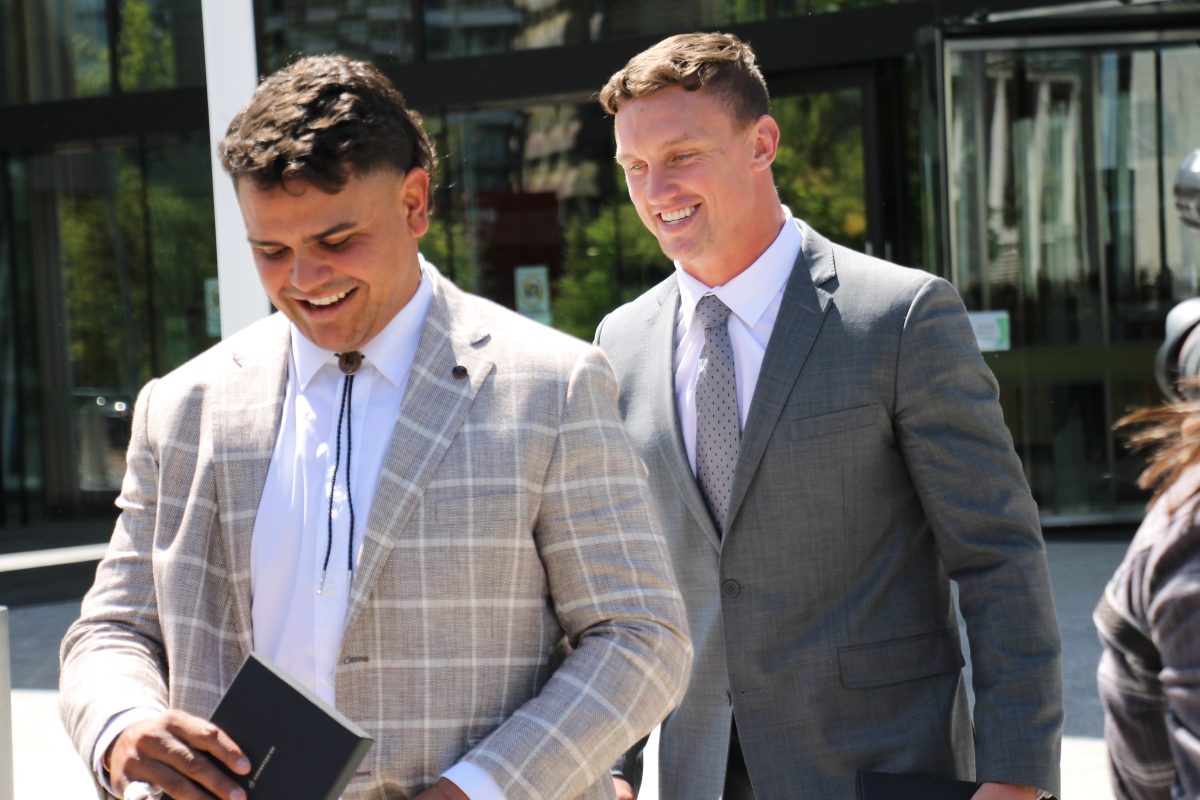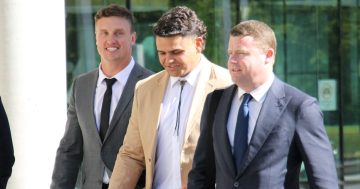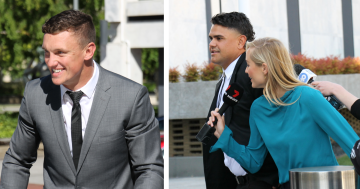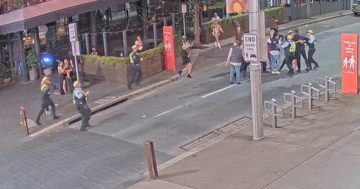
Latrell Mitchell and Jack Wighton leave court after all charges were dismissed. Photo: Albert McKnight.
It hasn’t been a good year for the ACT’s contracted police force.
Already under pressure over response times and a perceived lack of presence in the suburbs, ACT Policing found itself the centre of unwanted national attention, first through the trial of Bruce Lehrmann for the alleged rape of Brittany Higgins at Parliament House and the aftermath when the trial was aborted, and now the court appearance of two high-profile NRL stars, who just happened to be Indigenous men.
The case against Jack Wighton and Latrell Mitchell over their so-called brawl in the city in February this year was a train wreck for the police, with all charges dismissed after a senior officer admitted giving false evidence and having a “memory problem”.
The court also heard how he had led a group of nine police officers in a discussion after the incident to compile a statement about what had happened, something he admitted was “definitely not the best way to do things” when challenged about it by Wighton’s lawyer.
CCTV footage clearly shows the South Sydney footballers, a little worse for wear, engaged in a bit of push and shove but not a blow was struck.
The police arrived late, with whatever was happening having run its course. The swarming arrest of Mitchell by multiple officers appears an overreaction.
ACT Policing has launched its own internal investigation into the incident, before which police kicked Wighton out of Fiction nightclub, where the pair had been celebrating his birthday.
Canberra Raiders CEO Don Furner, who made representations to police and the DPP on behalf of his former charge Wighton, said the whole matter could have been avoided.
No doubt police in hindsight would agree.
The whole affair again throws a spotlight on how the ACT’s police operate and raises questions about whether something systemic is at play.
The public expects the police to keep public order and protect people from violence in the city.
In July they went public, issuing a warning to partygoers after a couple of bad weekends when there were violent, alcohol-fuelled incidents.
But what happened with the two footballers does not engender public confidence.
Not only does it appear to be an overreaction but there appears to have been a breakdown in procedure and due process that was found out in court and in the glare of national media.
The police, so often criticised for just doing their job, once again found themselves under fire not just for sloppiness but for the vexed issue of Indigenous incarceration and its often tragic consequences.
It is right that there is an investigation, and the results should be made public.
It is hoped that the incident will also prompt a review of how police go about keeping the peace in the city or elsewhere so similar incidents do not occur again.
Other less famous defendants have likely not had the means and support to contest charges, or as much to lose as these professional footballers whose licence to play could have been on the line.
The police deserve the community’s thanks and respect for the tough job they do, but those involved in this sorry episode owe it to their colleagues as much as anyone to do better.





















